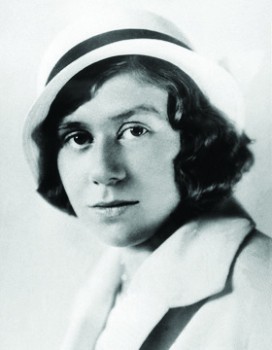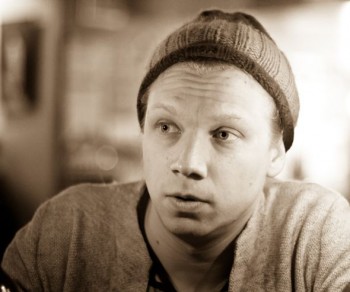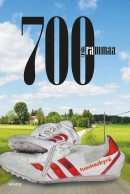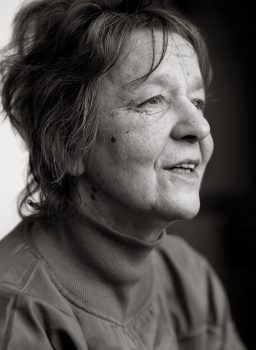Search results for "aleksis kivi"
Far from the madding crowd
21 February 2013 | Articles, Non-fiction

Saima Harmaja (1913–1937). Photo: WSOY
‘I don’t belong to the crowd,’ the young Saima Harmaja wrote in her diary in 1933. Her work as a poet was for her a vocation that superseded everything else. In her diaries she often speaks as a sociable young woman, with a delicious sense of humour, but her best poems seriously explore love, and death which cast its shadow over her. A selection of her poems – the best of which have made her a Finnish classic – is now published in English for the first time
In her diary the young poet claimed: ‘I think I would die if I could not write.’ What Harmaja shared with the poets of the early part of the twentieth century who influenced her was the private and personally experienced nature of poetry itself, rather than the realisation of any current aesthetic programme.
Harmaja is one of those poets whose works have passed through the hands of readers from decade to decade. She is also a prototype of the poet of her generation: gifts that led to the expectation of a brilliant career, a life that was brought to a tragic end by tuberculosis, leaving just five years of work as a poet. More…
On the make
31 December 2007 | Fiction, Prose
Extracts from the novel Benjamin Kivi (WSOY, 2007). Introduction by Lauri Sihvonen
Benjamin Kivi alias Into Penger, the 1930s
What was Kuihkä worth? What were this little man and his sons worth? What was I worth?
I drove where the little man told me to, with no lights, through a densely populated area. I could only see half a meter in front of me, trying to sense the bends and curves in the road and still keep Tallus’ car in good shape. When we got to the woods I turned on the lights and glanced at the little man sitting next to me. He was stuffing a handkerchief into his sleeve like an old housewife. The top of his head was sweating. He brushed his hair back and shoved his cap down on his head.
I had two hours to think as I drove, but it felt like a few minutes. If I didn’t drive the car, someone else would have, everything would happen just like the little man had planned, and I wouldn’t know anything about Kuihkä. What was I going to do, watch while he was thrown to the wolves? Kuihkä rescued me once. Was it meant to be that I should drive the car? Was I meant to change the course of events? How many coincidences can there be in one lifetime, and what do they signify? If events weren’t random, then what the hell was I supposed to do? More…
Runeberg Prize 2013 for poetry
8 February 2013 | In the news

Olli-Pekka Tennilä. Photo: Aleksis Salusjärvi, 2012
The Runeberg Prize for fiction, awarded on 5 February, this year for the twenty-seventh time, went to a book of poetry by Olli-Pekka Tennilä (born 1978).
Tennilä’s second work, Yksinkeltainen on kaksinkeltaista (‘Doubly simple’, a pun: yksinkertainen = simple, kaksinkertainen = double, keltainen = yellow), published by Poesia, makes use of a child’s open-minded use of language and studies the world of the bees. Tennilä is one of the founding members of Osuuskunta Poesia, a poetry cooperative, and is currently its publishing director.
The prize, worth €10,000, was awarded on 5 February – the birthday of the poet J.L Runeberg (1804–1877) – in the southern Finnish city of Porvoo.
The jury, writer Tommi Melender, critic Siru Kainulainen and theatre manager Dan Henriksson – representing the prize’s founders, the Uusimaa newspaper, the city of Porvoo, both the Finnish and Finland-Swedish writers’ associations and the Finnish Critics’ Association – chose the winner from a shortlist of eight books. In their opinion the winning work is both ‘a structurally controlled and expressively vital whole; it demonstrates how the linguistic logic of a small child can be employed again as an adult.’
The other seven finalists were a book of essays, Toinen jalka maassa ja muita esseitä (‘One foot on the ground and other essays’, WSOY) by Markku Envall, two poetry collections, Keisarin tie (‘The emperor’s road’, Otava) by Lassi Hyvärinen and Kuolinsiivous (‘Death cleaning’, WSOY) by Eeva Kilpi, two collections of short stories, Kadonnut ranta (‘Lost shore’, WSOY) by Tiina Laitila Kälvemark and Till dig som saknas (‘To you who are missing’, Schildts&Söderströms) by Peter Sandström, as well as two novels, Rikosromaani (‘Crime novel’, Otava) by Petri Tamminen and Neuromaani (‘Neuromane’, Otava) by Jaakko Yli-Juonikas.
A greater solitude
30 December 2004 | Fiction, Prose
Extracts from the novel Runoilijan talossa (‘In the house of the poet’, Tammi, 2004)
Images of love
The double door to the patio is tightly swollen into the framework, so tight I’m chary of using force to prize it open. The windows might break. The lower part remains stuck, as if screwed to a carpenter’s bench, while the upper part gapes – leans out as if longing to liberate itself from its lintel. That’s an image of love: one part longs to be free, the other part holds on fast. I get a toolbox from the cleaning cupboard and try to hammer a chisel into the space between the bottom edge and the threshold. I succeed, but the chisel marks the door, defacing it. That’s an image of love too. More…
Kullervo’s story
31 March 1989 | Archives online, Fiction, Prose
Paavo Haavikko wrote this manuscript for the television series Rauta-aika (‘Age of iron’), broadcast in 1982. lt also appeared as a book in 1982, complemented by Kullervon tarina (‘Kullervo’s story’ ) which had been omitted from the original. The text follows the stories of the Kalevala, but they are given a new interpretation: the characters are demythologised, they resign themselves to their fates – they are like ourselves. These extracts are the final scenes in which incest, revenge and death appear in a slightly different guise from Kalevala, or Kivi’s Kullervo.
– Mother, on the road I met your daughter, who is my sister, and took her into my sleigh. She had broken one of her skis. Spring came in one day, the clouds in front of the moon tore themselves to shreds so that two moons passed in one night. Winter went, Spring came, I brought the sleigh back, and I slept on top of the sacks so that not a single grain or seed would be lost. It’s all in the sacks now, saved. The clouds tore off their clothes and washed them in the rivers of rain, and naked, in the dark, they waited for their clothes to dry, those clouds. They even darkened the moon, they would have killed it if they could have reached that far, as it spied on the cloud women who were washing the clothes they had taken off in the waters of heaven, and two moons passed in one night, Kullervo says to his mother, piling up lies like a little boy. Many words. More…
Money makes the world go round
31 August 2012 | Fiction, Prose
Extracts from the novel Mr. Smith (WSOY, 2012). Introduction by Tuomas Juntunen
I have a confession to make.
I couldn’t have lived on my salary. Most people would solve this by taking out a loan, living on credit. I’ve never lived in debt. Instead I’ve had to make my modest capital grow by investing it – through the company, of course, because irrespective of their colour governments generally understand companies better than small investors. You have to make money somewhere other than the Social Security Office.
Work doesn’t make money; money makes money.
You have to let money do the work.
This is nothing short of a profound human tragedy: most people are forced to waste the majority of their lives, to use it in the service of complete strangers, for unknown purposes, doing something for money that they would never do if they didn’t have to. The most shocking thing is that people actively seek out this state of affairs, strive towards it; it is a goal towards which society lends us its full support, no less.
Such wage slavery is called ‘work’. More…
Tuomas Kyrö: 700 grammaa [700 grams]
12 November 2009 | Mini reviews, Reviews
 700 grammaa
700 grammaa
[700 grams]
Helsinki: WSOY, 2009. 379 p.
ISBN 978-951-0-35601-2
€ 30, hardback
The genre of the picaresque novel is doing well, and one of its foremost exponents in Finland is Tuomas Kyrö (born 1974). The plot of his ingenious first novel, Nahkatakki (‘Leather jacket’, 2001), revolved around a jacket that moves from one owner to another. His later novels maintain this comical tension, but with a deepening of themes and a more sober outlook. Liitto (‘Union’, 2005) portrayed people scarred by war, while Benjamin Kivi (2007, featured in Books from Finland 4/2007) retold Finland’s history in a light-hearted and anachronistic manner. 700 grammaa is a book about sports fever and family relationships, the exploration of love and the pursuit of dreams. The main character is a boy who at birth weighs only 700 grams, and whose father vows to perform a seven metre long-jump if his son survives. He does, and the father has to devote his life to this almost impossible sporting achievement This novel, with its fast-developing plot and varied narrative techniques, is a paean to the heroism latent in mediocrity.

